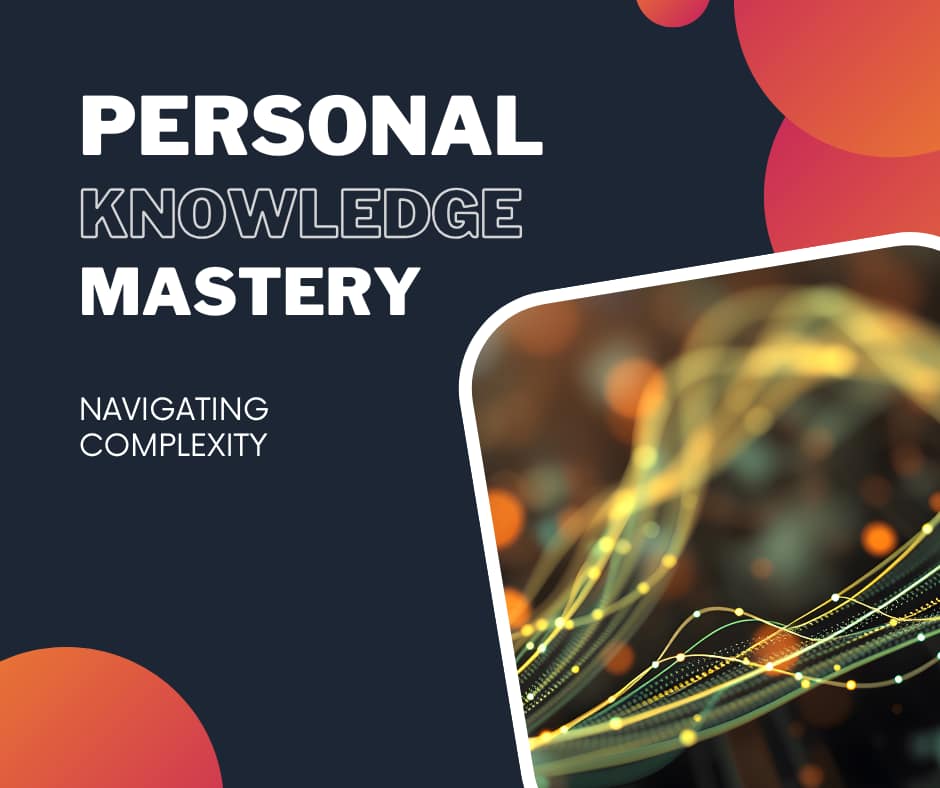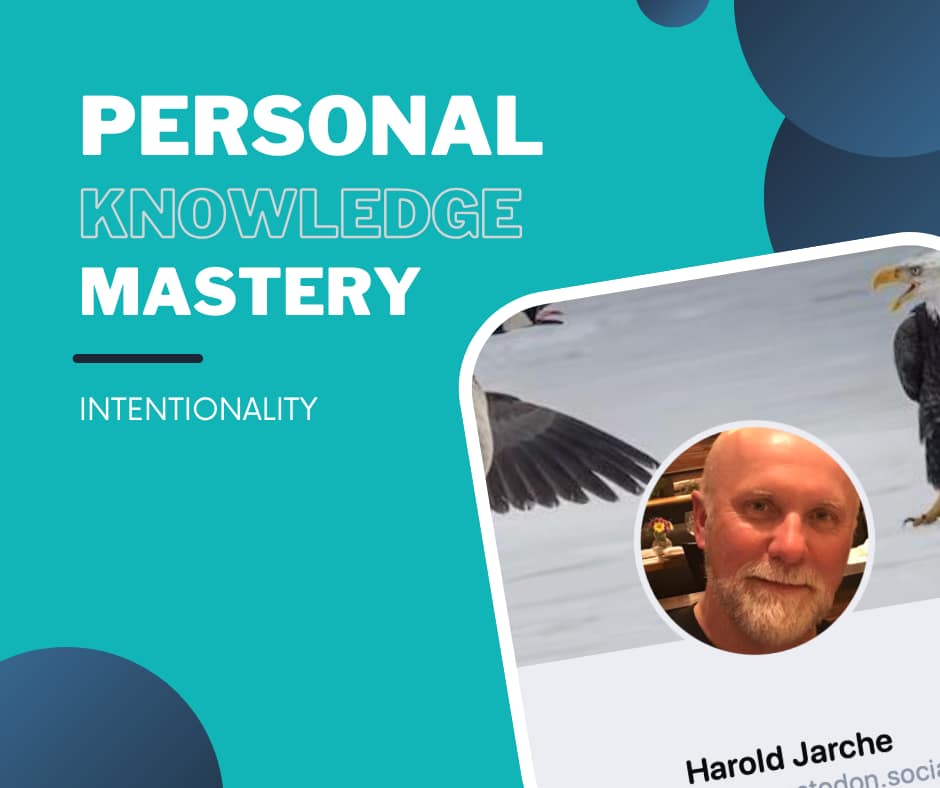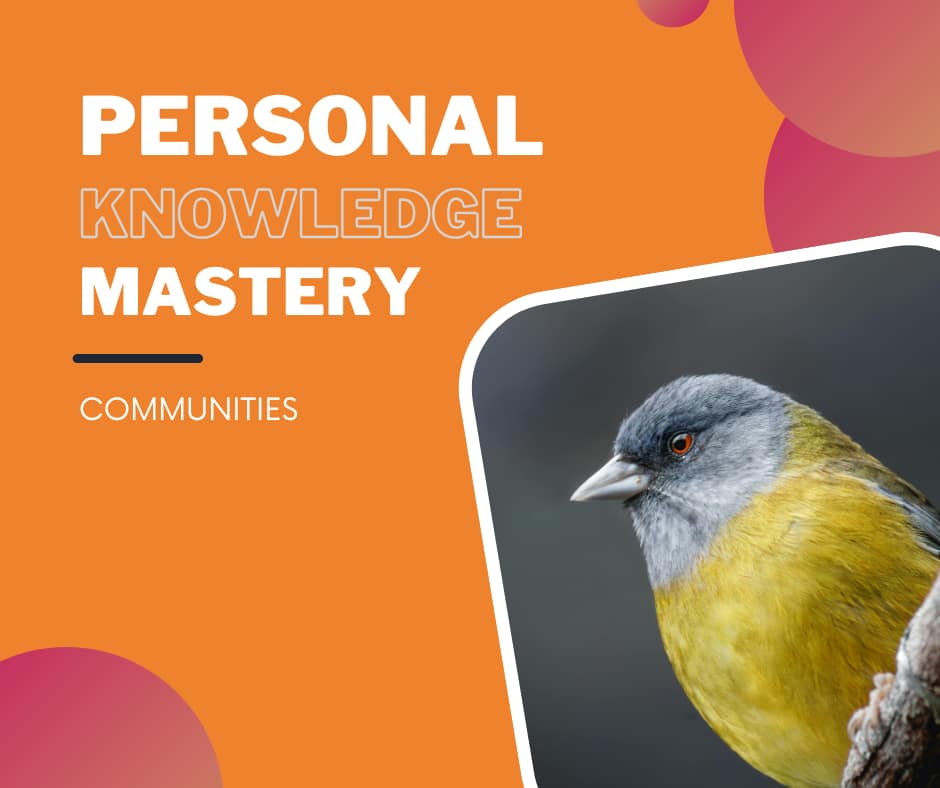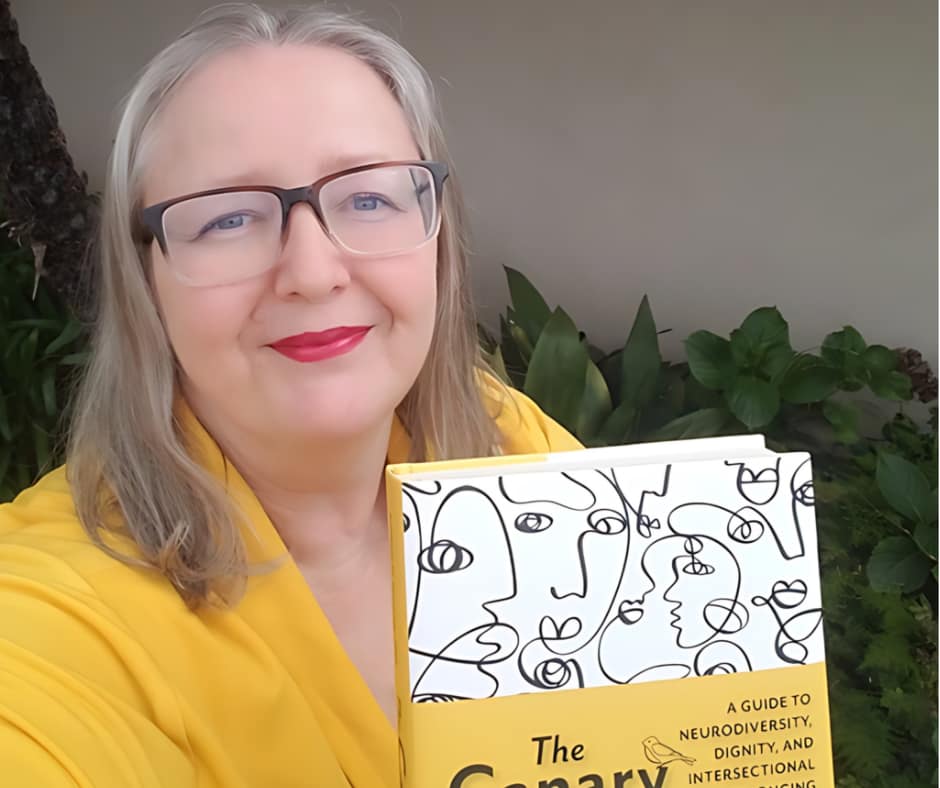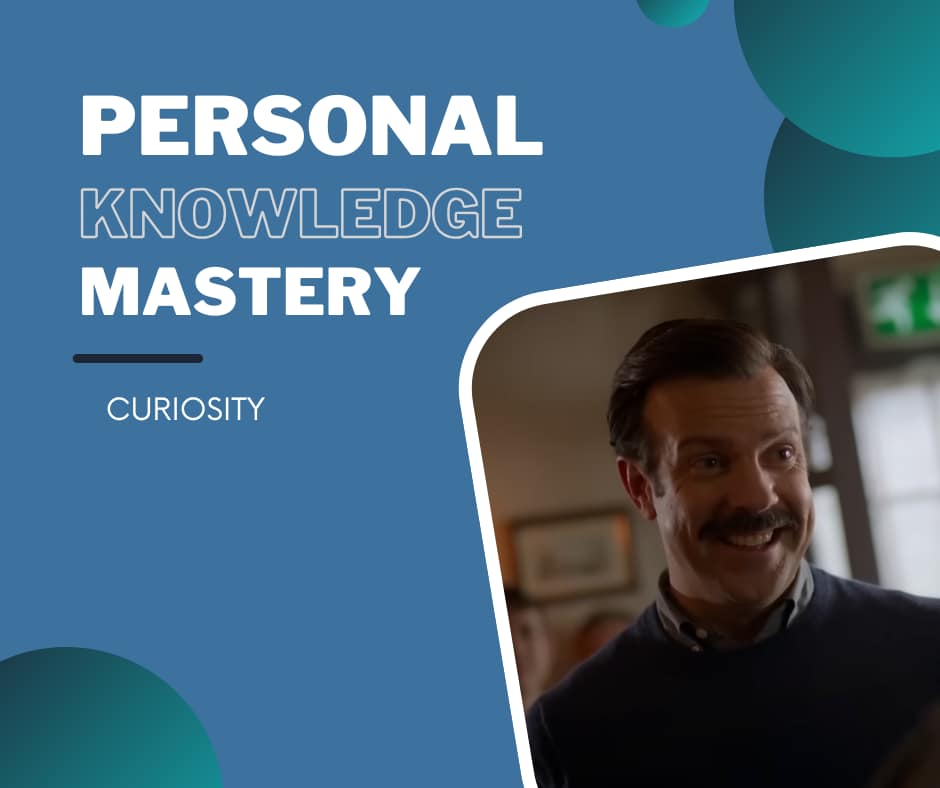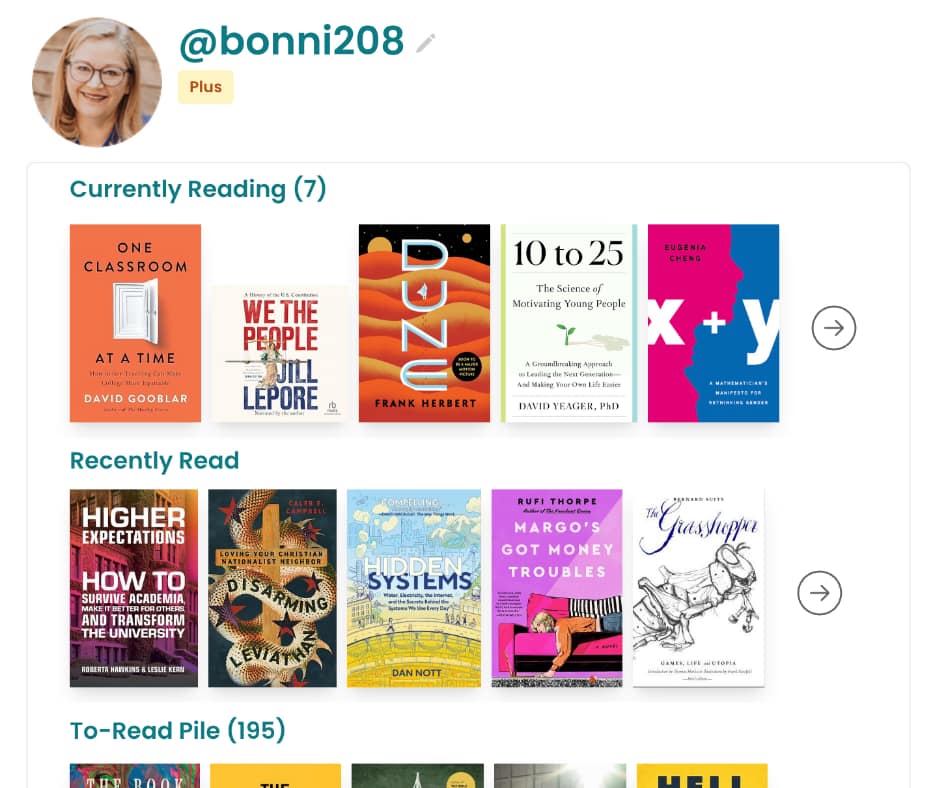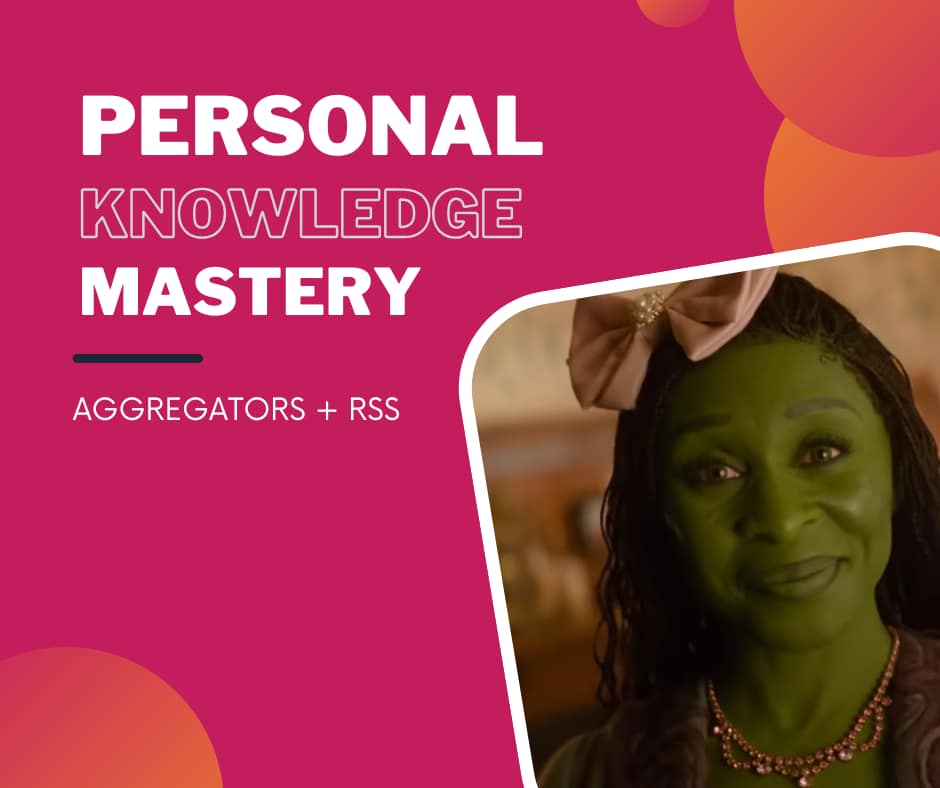
It was a bit of a relief to have well-traveled terrain as the today's topic in Harold Jarche's Personal Knowledge Mastery workshop: Aggregators and RSS.
While I still want to drop everything going on in my life right now and dive deep into the topic from two days ago (the Cynefin Framework), that just isn't realistic. This PKMastery workshop has been a wonderful blend of ideas that challenge me, coupled with topics that I always enjoy learning more about, but am not starting from scratch with…
RSS – Not-So-Popular
It seems RSS could really have used some help from Galinda in the musical, Wicked, in terms of getting popular. I wish aggregators and RSS were something that the vast majority of people knew about and had incorporated into their lifelong learning and sense-making. It's strange to me that RSS has been around such a long time, yet still isn't very common in organizations at all.
In case the terms (RSS and aggregators) are new to you, Common Craft's RSS in Plain English from 18 years ago still checks out:
The Good, the Bad, and the Ugly
I've got some good news for you, some bad news, and some real ugly news.
The good: There's a ton of information on the internet, which has the potential to be transformative for us, as sense-making human beings.
The bad: We can't keep up and the quantity of information just keeps on growing, yet not enough of us know ways to harness the possibilities.
The ugly: Some of us give up on thinking we'll never be able to have a way of seeking, sensing, and sharing, so we resolve to just search for things at the exact moment we realize we have a specific question about something (a gap in our knowledge that we are aware of in that moment).
What gets missed here in “the ugly” (among other things) are the questions we don't even realize we have… The unknown unknowns… Not to mention misinformation/disinformation, etc.
Getting to Know RSS
Here are some RSS-related articles that I've saved on my digital bookmarking tool of choice: Raindrop:
- Curate your own newspaper with RSS, by Molly White
- How I Use my RSS Feed for Bluesky and Mastodon: Keep up with anyone, no social media account required, Justin Pot for LifeHacker
- Real Simple Syndication, by Harold Jarche
- The Indispensable Digital Research Tool I can Say, Without Lying, Saves Time, by Alan Levine
Next, let's take a look at how I've set things up to be a tap away from a world of possibilities for sense-making…
My RSS + Aggregation Tools
I use Inoreader as my RSS aggregator. That means that when I discover a source (news site, blog, newsletter, YouTube channel, etc.) that I discern will serve me up potentially useful information, I add it to Inoreader inside my existing folders (e.g. News, Technology, Business, Digital Pedagogy, Higher Ed, Thinkers). Each time one of those sources (called feeds in RSS nomenclature) posts something new, it automatically shows up as an unread item on Inoreader.
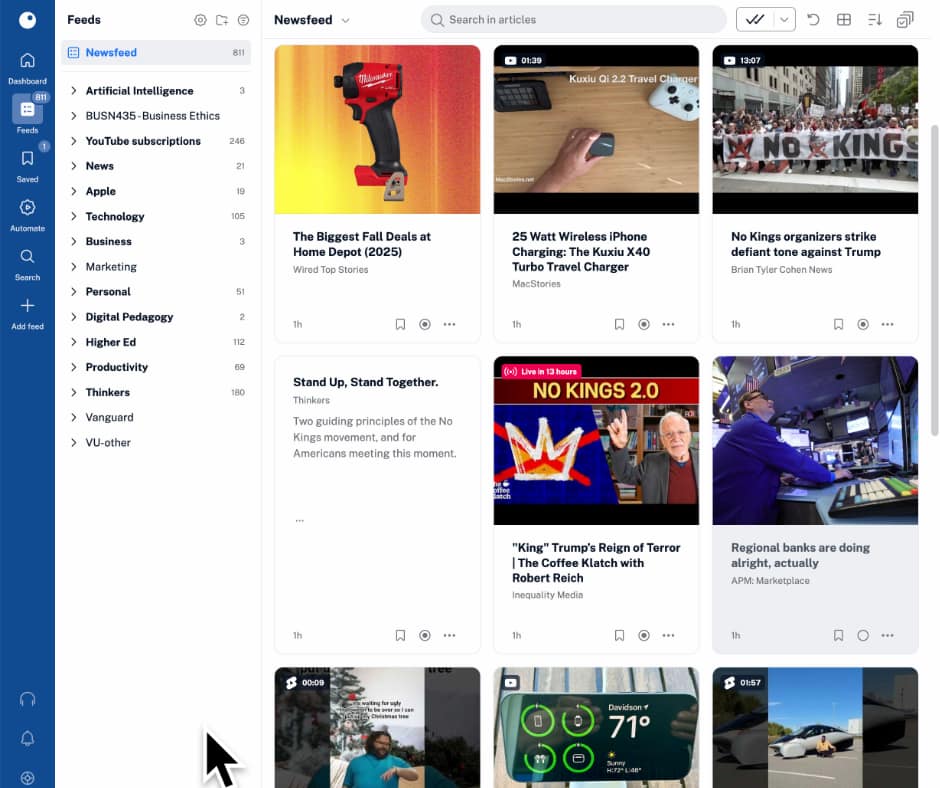
Thats where some people stop.
They download Inoreader's app(s) and read their feeds on their computers or smart phones and they're off to the races. Inoreader is both an RSS aggregator (keeping track of what feeds the user subscribes to, as well as which stories they have read/not read) and a reader (actually reading/watching/listening to the items in the feeds you've subscribed to).
However, I'm picky about my reading experience and have gotten particular about being able to read via my iPad and navigate everything with just one thumb.

This is where you insert a joke about “who has two thumbs and can set up RSS aggregators and tools? ME.” Except that in my case, it actually only takes one thumb, using my preferred RSS reader.
Unread = The Best RSS Reader I've Ever Experienced
Those who read on iPads would be hard pressed to find a better RSS reader than Unread, especially if you want to be able to skim and scroll through headlines (you can set up Unread to automatically mark the items as read, as you scroll through them, making the navigation even easier).
Inoreader does the work behind the scenes of keeping track of all my subscriptions and what is read/unread. The Unread app then presents me with a “window” into all that “stuff” Inoreader is keeping track of in the background. Unread “syncs” with Inoreader. I don't have much use of an RSS reader on my Mac, preferring to do most of my RSS consumption via my iPad, but I wanted to mention that even if you had a different app/service you preferred to use on your computer, Inoreader (and other RSS aggregators) are able to keep track across different RSS readers what you've read/unread.
Something Very Cool
Harold Jarche suggested that those of us who already have an aggregator / RSS workflow to share tips. I've kind of done that, already, above. But I will say that through his materials, I was delighted to discover that I can set up feeds for Mastodon #hashtags.
From Harold:
You can also subscribe to any Mastodon feed by adding .rss to the address, e.g. mastodon.social/@harold.rss
You can subscribe to #hashtags by appending .rss — e.g. https://mastodon.social/tags/pkmastery.rss
The PKMastery workshop is the gift that just keeps on giving. I'm looking forward to giving that a try this weekend. So cool.
